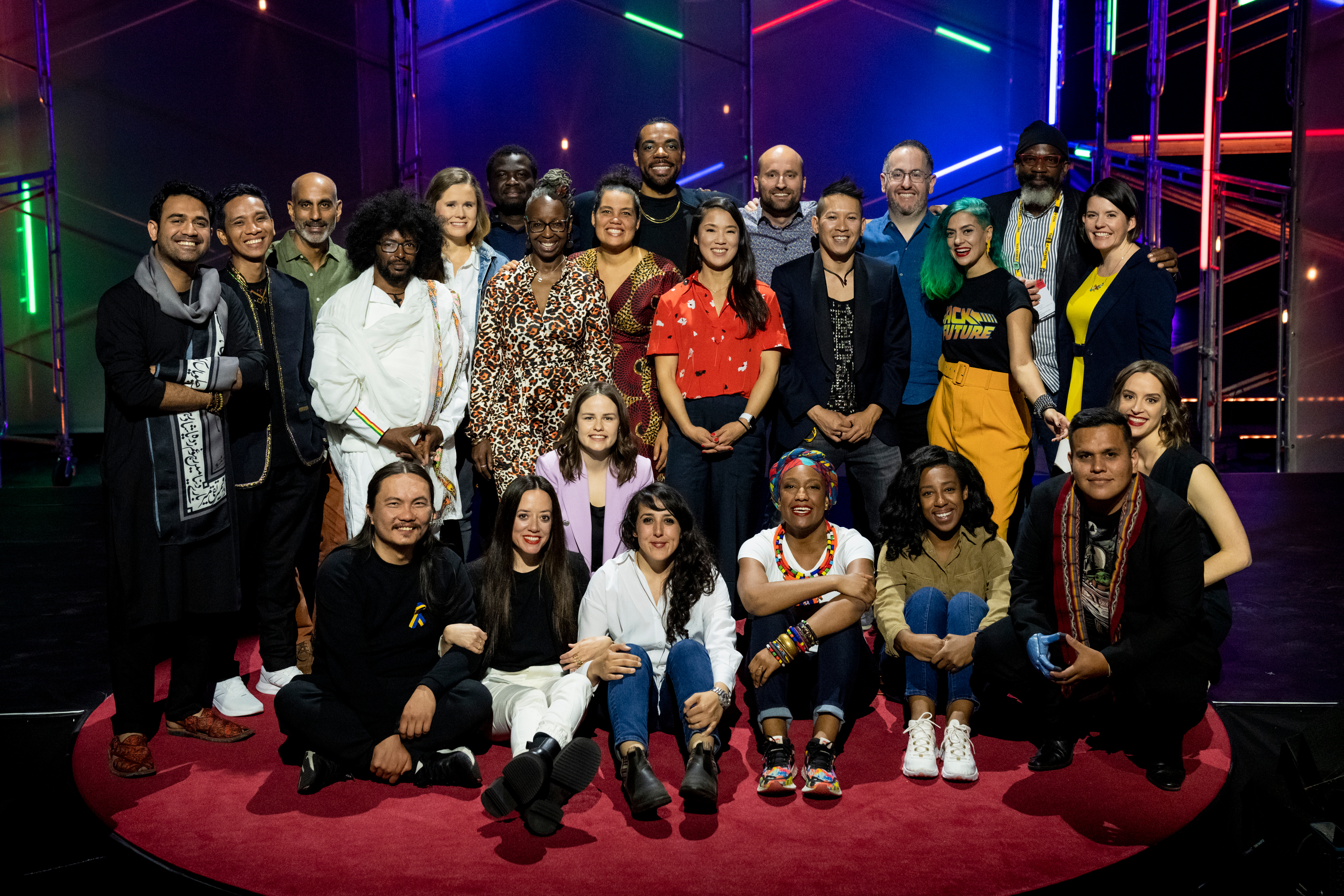
The 2022 TED Fellows at TED2022: A New Era on April 10, 2021 in Vancouver, BC, Canada. (Photo: Ryan Lash / TED)
Session 2 of TED Fellows talks brought us yet another incredible group of individuals doing wildly different things in wildly different places. Eleven speakers and one performer took us across the globe to share their bold plans for social impact, technological innovation, cultural shifts and more.
The event: Talks from Session 2 of TED Fellows Talks at TED2022, hosted by TED’s Shoham Arad and Lily James Olds
When and where: Sunday, April 10, 2022, at the Vancouver Convention Centre in Vancouver, BC, Canada
Speakers: Channing Gerard Joseph, Clementine Jacoby, Jawad Sharif, Adjany Costa, Olga Kitaina, Wiatta Thomas, Robert Katzschmann, Albert Cahn, Heejae Lim, Kiana Hayeri, Melaku Belay
Music: With infectious rhythms, “Blinky” Bill Sellanga delivers another killer set of his songs “Jam Now Simmer Down” and “Dracula” to open up the session of talks.
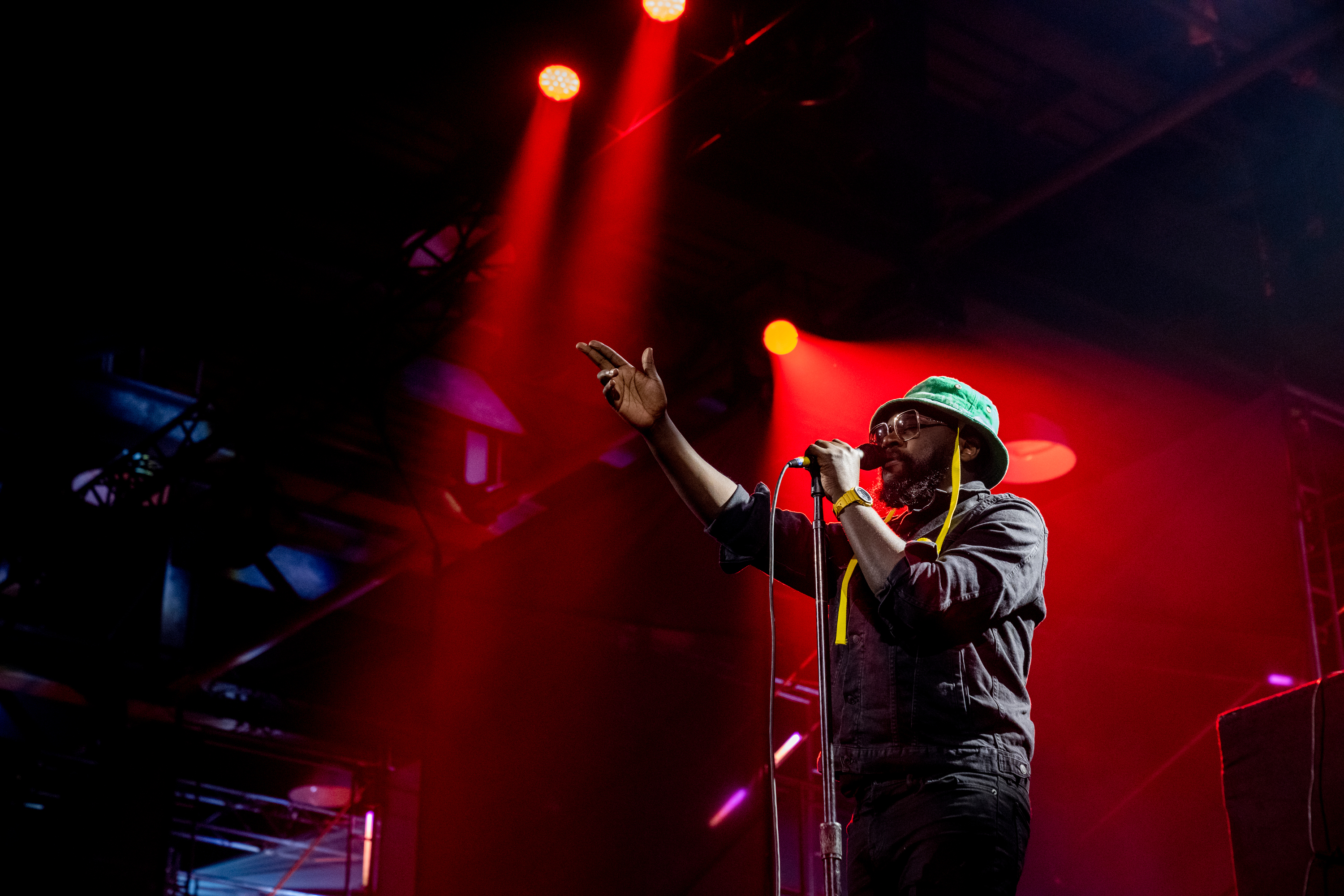
“Blinky” Bill Sellanga performs at TED Fellows Talks Session 2 at TED2022: A New Era on April 10, 2022 in Vancouver, BC, Canada. (Photo: Ryan Lash / TED)
The talks in brief:
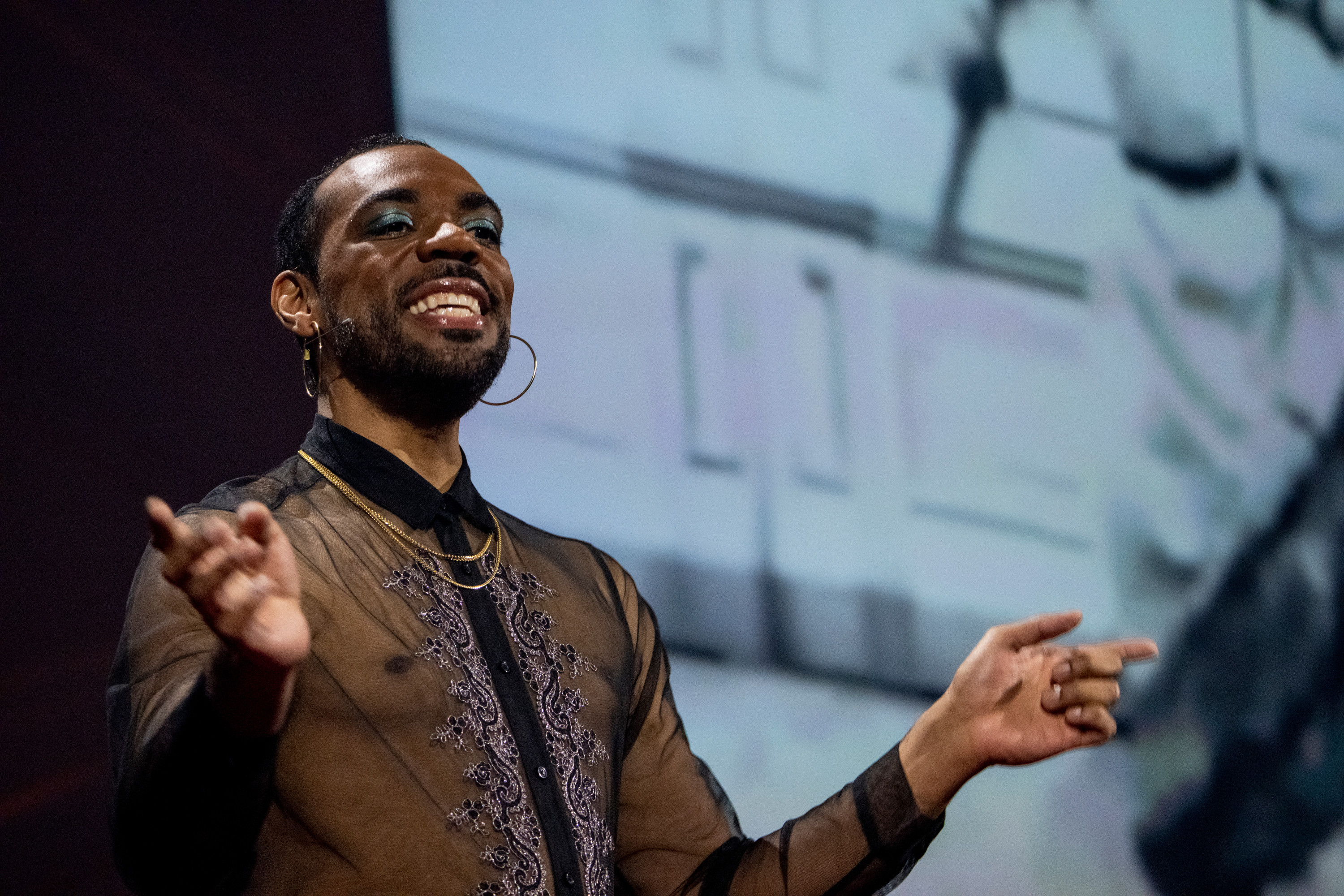
Channing Gerard Joseph speaks at TED Fellows Talks Session 2 at TED2022: A New Era on April 10, 2022 in Vancouver, BC, Canada. (Photo: Ryan Lash / TED)
Channing Gerard Joseph, author, queer culture historian
Big idea: Learning Black queer history is crucial to understanding our shared history.
Why? Black queer communities have largely been erased from history — perceived as immoral, deviant and even dangerous. Thus many don’t know how Black queer people have shaped American history — people like Bayard Rustin who organized the 1963 March on Washington or Francis Thompson who helped shaped the course of Reconstruction and support for the 14th Amendment. Take the fight for queer liberation, for instance. The accepted narrative is that it all started with the Stonewall Inn uprising, which sprouted Pride celebrations … but that isn’t exactly true, says Joseph. The foundation of self-acceptance and solidarity needed for the courageous, confident community to take root had been fostered long before thanks to William Dorsey Swan, the first drag queen. Joseph shares the little-known yet storied history of Swan and the birth of drag, tracing its origins back to the Emancipation Day Parade, a celebration of freedom for Black Americans. Today, drag is mainstream, from documentaries like Paris Is Burning to television shows such as Pose and RuPaul’s Drag Race, without much of a nod to its revolutionary beginnings. The power to choose how we define ourselves is more important than ever. As long as the term queen lives on, it pays homage to a century-and-a-half long celebration of African American liberation, says Joseph. But that also begs the question: How many other Black queer stories have been erased from historical record, and what could those stories teach us about who we are?
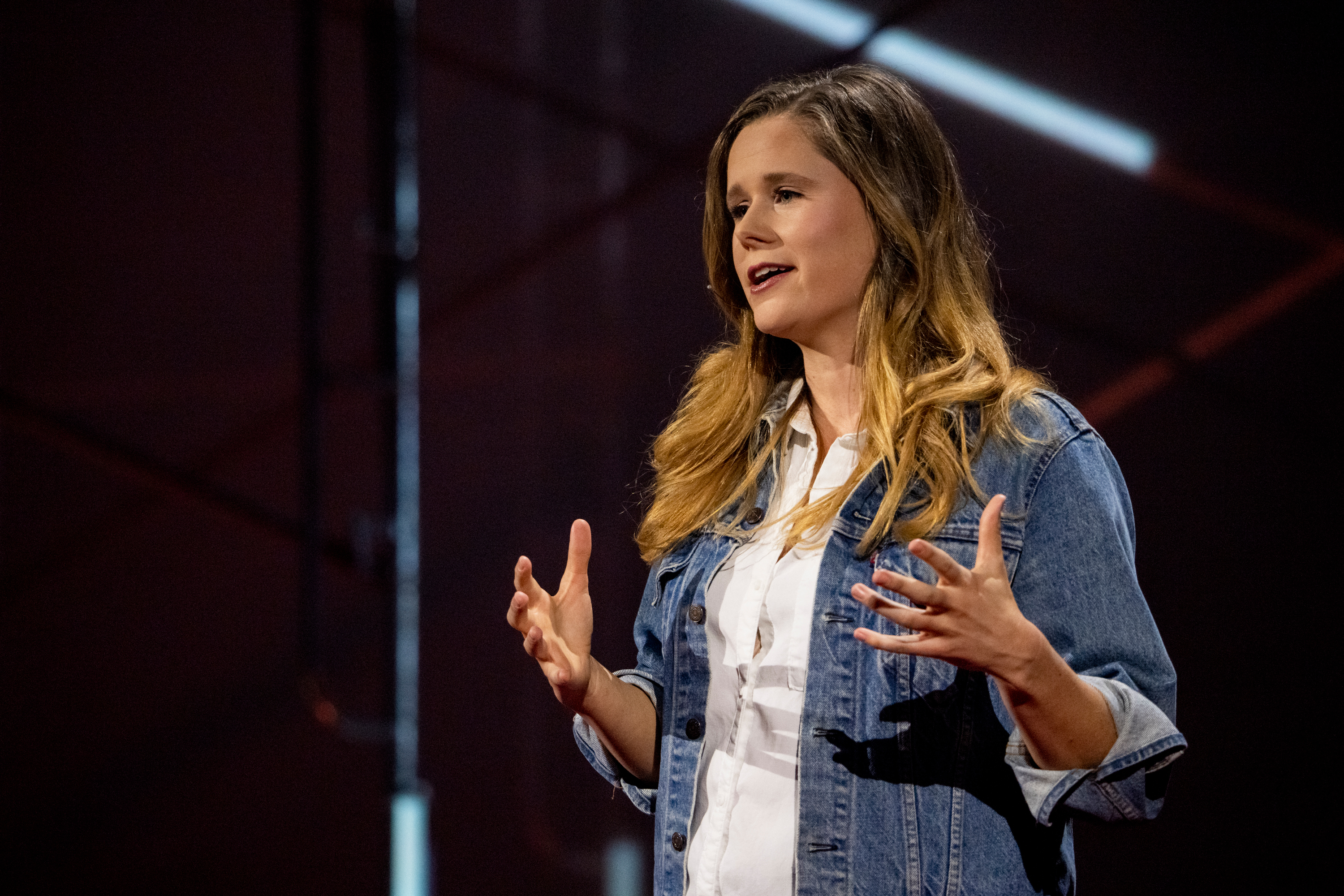
Clementine Jacoby speaks at TED Fellows Talks Session 2 at TED2022: A New Era on April 10, 2022 in Vancouver, BC, Canada. (Photo: Ryan Lash / TED)
Clementine Jacoby, criminal justice technology entrepreneur
Big idea: Despite checking all the boxes and meeting all the requirements, hundreds of thousands of people are stuck in prison or on parole due to the faulty, incomplete databases that form the backbone of the criminal justice system. By connecting these stale and scattered databases, we can get these people out of the prison system and help ensure they stay out.
How? From policymakers to parole officers, everyone in the criminal justice system agrees that bad data keeps people stuck in the system. The reason is simple: vital information related to drug testing, fines, housing and employment is kept in siloed and stale databases, leading to information bottlenecks. Tracking down all the data requires a level of time and energy that is difficult to maintain by parole officers due to their already overwhelming work schedules. At Recidiviz, an engineering nonprofit, Clementine Jacoby works to connect the five databases that control parole and release eligibility. One of her tools helps parole officers identify who is eligible for parole, who is missing a final requirement and who needs the most help. They launched the tool in Idaho, and after just six months, five percent of people on parole and probation were moved to lower levels of supervision — or out of the criminal justice system entirely. Data won’t entirely fix the US criminal justice system, but it can help the 200,000 people stuck in it due to slow data, offer corrections leaders new ways to gauge program success and inform policymakers of better ways to understand the impacts of both new and engrained justice system laws.
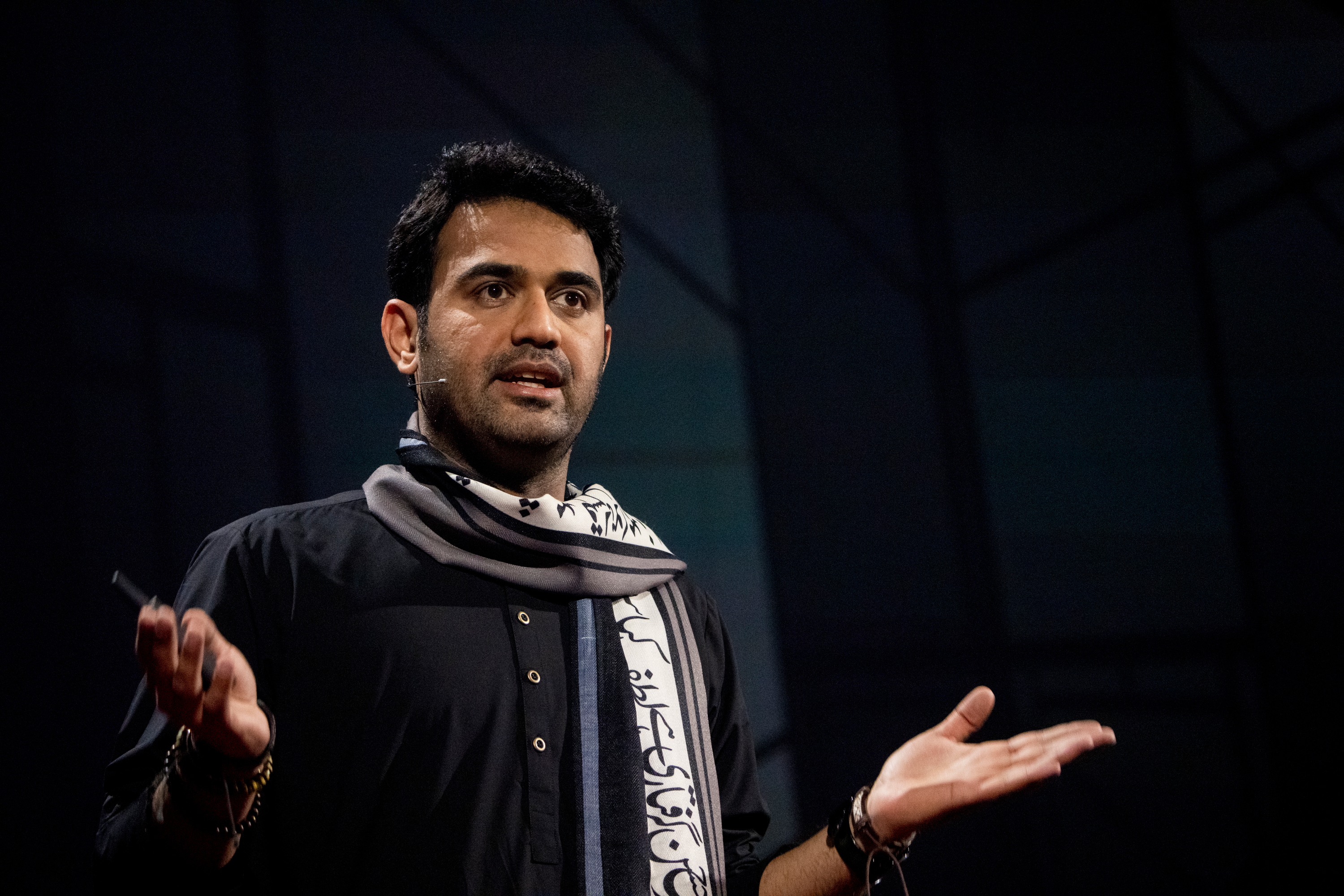
Jawad Sharif speaks at TED Fellows Talks Session 2 at TED2022: A New Era on April 10, 2022 in Vancouver, BC, Canada. (Photo: Ryan Lash / TED)
Jawad Sharif, documentary filmmaker
Big idea: Documentary film is a space for debate and dialogue that challenges the danger of reducing reality to a singular story.
How? As a filmmaker, Jawad Sharif amplifies the unheard voices of his homeland Pakistan. “I decided to show this richness by telling the stories of communities that didn’t fit in the single narrative of my country — a narrative that dictates how we have to think and how we have to live.” says Sharif. His filmmaking has led him to the second-highest mountain in the world, K-2, where he followed the path of Pakistani mountaineers like Hassan Sadpara, who make dangerous treks carrying the luggage of foreign climbers. His art introduced him to Faqeer Zulfiqar, one of the only musicians in Pakistan who plays the ancient boreendo instrument. It also led him to Sarah Gill, Pakistan’s first transgender doctor — a massive achievement in the face of discrimination. Sharif’s documentary films give voice to the free thinkers of his country. By countering a narrative that nurtures fundamentalism, he uses this medium as both an act of defiance and an act of creation.
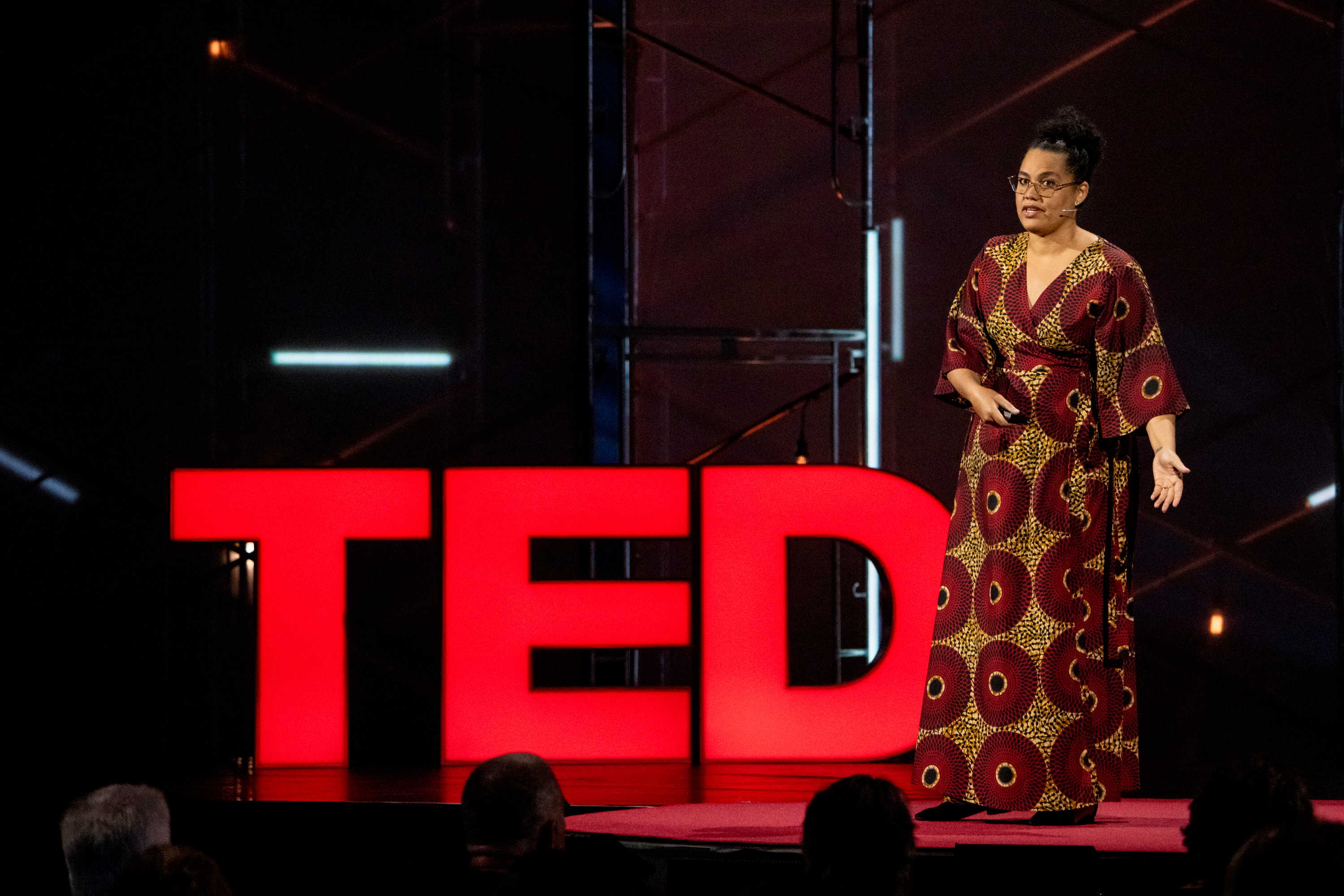
Adjany Costa speaks at TED Fellows Talks Session 2 at TED2022: A New Era on April 10, 2022 in Vancouver, BC, Canada. (Photo: Ryan Lash / TED)
Adjany Costa, Indigenous conservation champion
Big idea: To preserve key ecosystems around the world, global conservation efforts should center the voices of those in communities that are most vulnerable.
How? In places like the Angolan village of Luchaze, generational knowledge, storytelling and ancient wisdom play a key role in community wellbeing — but conservationist Adjany Costa notes that these cultural customs are often left out of environmental conservation strategies. This is what she refers to as “community-based conservation washing.” Similar to the greenwashing associated with many climate actions efforts, it doesn’t consider the environmental, social and economic realities of a place or people. Costa has observed the immediate effects of this exclusionary approach while working in Angola’s Kavango Zambezi Transfrontier Conservation area: the KAZA wetlands are teeming with flora and fauna, but its sources in Eastern Angola remain unprotected. Encouraging a new way to think about conservation in Indigenous communities, she asks: What if instead of trying to impose a one-size-fits-all plan on communities, we allow them to use their centenary knowledge to inform policies and practices that are uniquely suited to their way of life? This approach is at the heart of her conservation work, which seeks to empower villagers — like the Luchaze people — to spearhead their own conservation efforts, by teaching them about alternative livelihoods, bridging storytelling gaps that have been created by war and putting the power of decision making back into their hands. Costa acknowledges that while help may come from outside sources, it is ultimately the trust that these communities instill in themselves that will allow them to cultivate a sense of ownership over their land and livelihood. “Lasting conservation comes from within, from believing, from belonging, from dreaming,” she says.
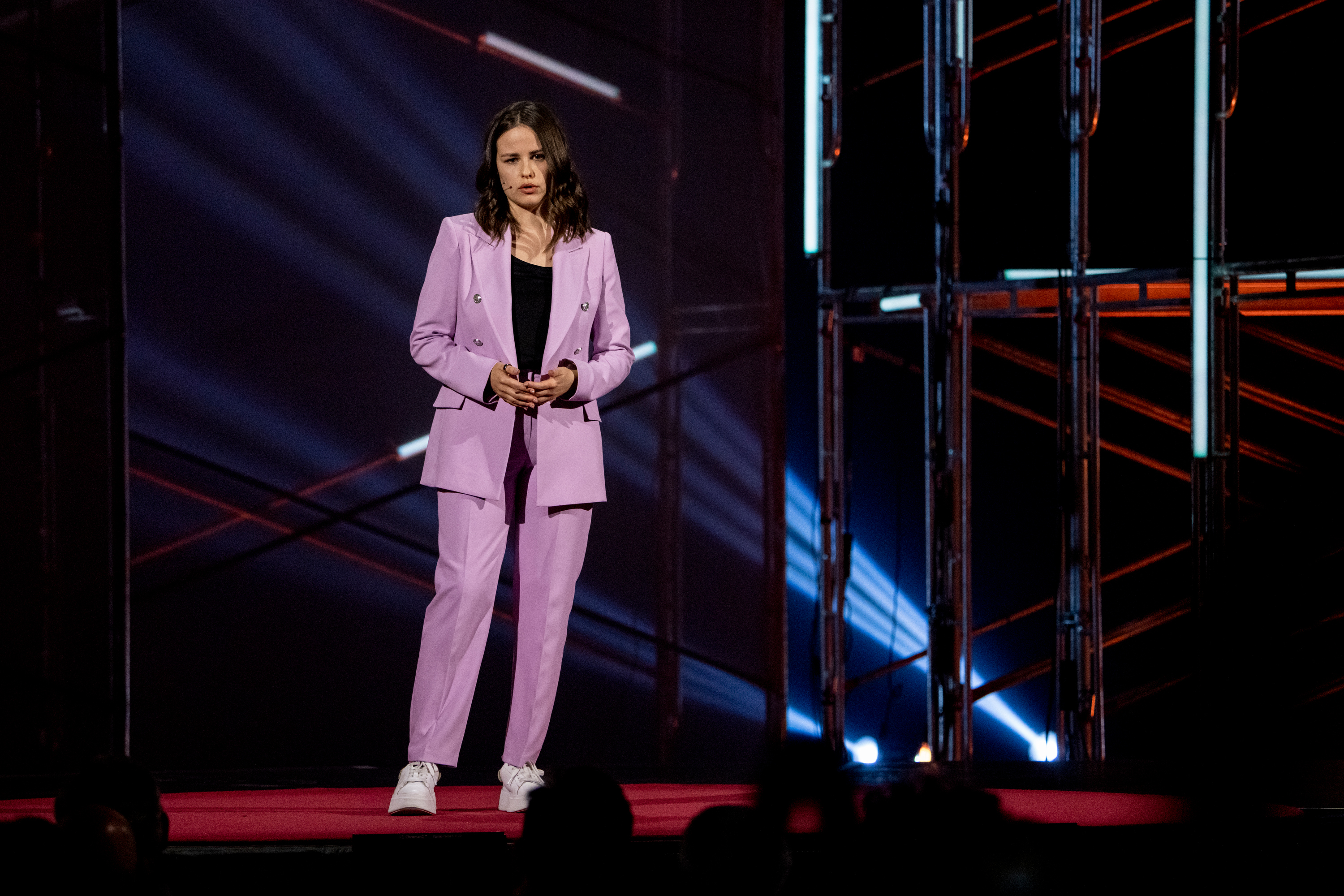
Olga Kitaina speaks at TED Fellows Talks Session 2 at TED2022: A New Era on April 10, 2022 in Vancouver, BC, Canada. (Photo: Ryan Lash / TED)
Olga Kitaina, psychologist, entrepreneur
Big idea: In Russia — with its cultural memory of psychiatry as an instrument of oppression — psychotherapy is a way to move forward from the burden of the past and trauma of the present.
How? During the Soviet Union, psychiatry was often used as a political tool. Since then, Russia has seen major reforms in the use of psychiatry to help instead of traumatize — yet problems remain. Stigmas surrounding mental health endure, and proper channels for support have never been developed. There’s nothing protecting people from scams and fraud, and the lack of proper licensing has allowed the likes of tarot card readers and astrologers to claim the title of psychologist. Kitaina saw an opportunity to remedy that gap and developed an assessment platform to get people the proper professional help they need. As factors such as stress and global issues increase, her goal is to minimize the risk of people giving up on therapy, negatively impacting well-being on both an individual and global scale. On top of that, Kitaina believes that without access to professional help, the biggest losses are the worsening quality of connections between people, the lack of self-awareness and the increase in hatred and violence that flourishes in its stead. Psychotherapy is about more than one individual finding help for their individual issues, she says — when one of us is wounded, all of us share that wound; by knowing ourselves, we become better human beings in our interconnected world, with a real hope of peace.
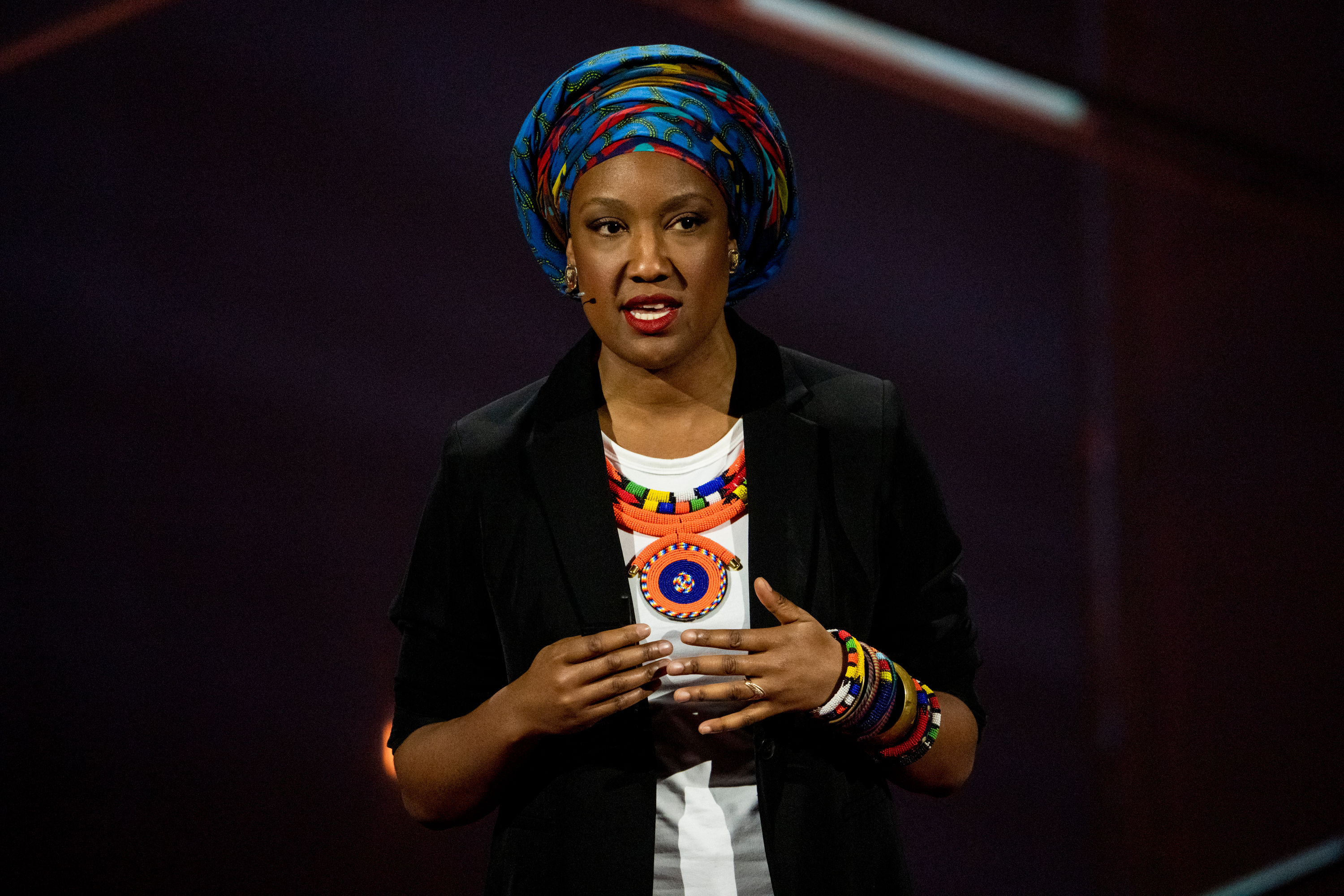
Wiatta Thomas speaks at TED Fellows Talks Session 2 at TED2022: A New Era on April 10, 2022 in Vancouver, BC, Canada. (Photo: Ryan Lash / TED)
Wiatta Thomas, agribusiness entrepreneur
Big idea: It’s time to abandon the individualistic mindset that often accompanies entrepreneurship and build a better one, founded on working together.
Why? Despite so much money being poured into development in African countries, Wiatta Thomas saw youth failing to launch sustainable agribusinesses due to a lack of access to resources, markets and technology. She recognized this as a symptom of the individualistic entrepreneurial mindset of the American startup scene, and founded Aquafarms Africa — a business incubator that adapts the traditional entrepreneurial approach to a community-focused model. “In attempting to mimic the West, we’ve lost the value of continuing to go forward together,” Thomas says. She and her team share assets like land, water and energy with entrepreneurs looking to launch agribusinesses. This helps farmers grow locally and see an increase in profits in highly sought-after products like yellow and red peppers, lowering the prices for the communities they are being sold to. We need investors to move on from a capitalistic mindset to a mutualistic one, says Thomas, to regenerate the planet, rather than destroy it for short-term profit.
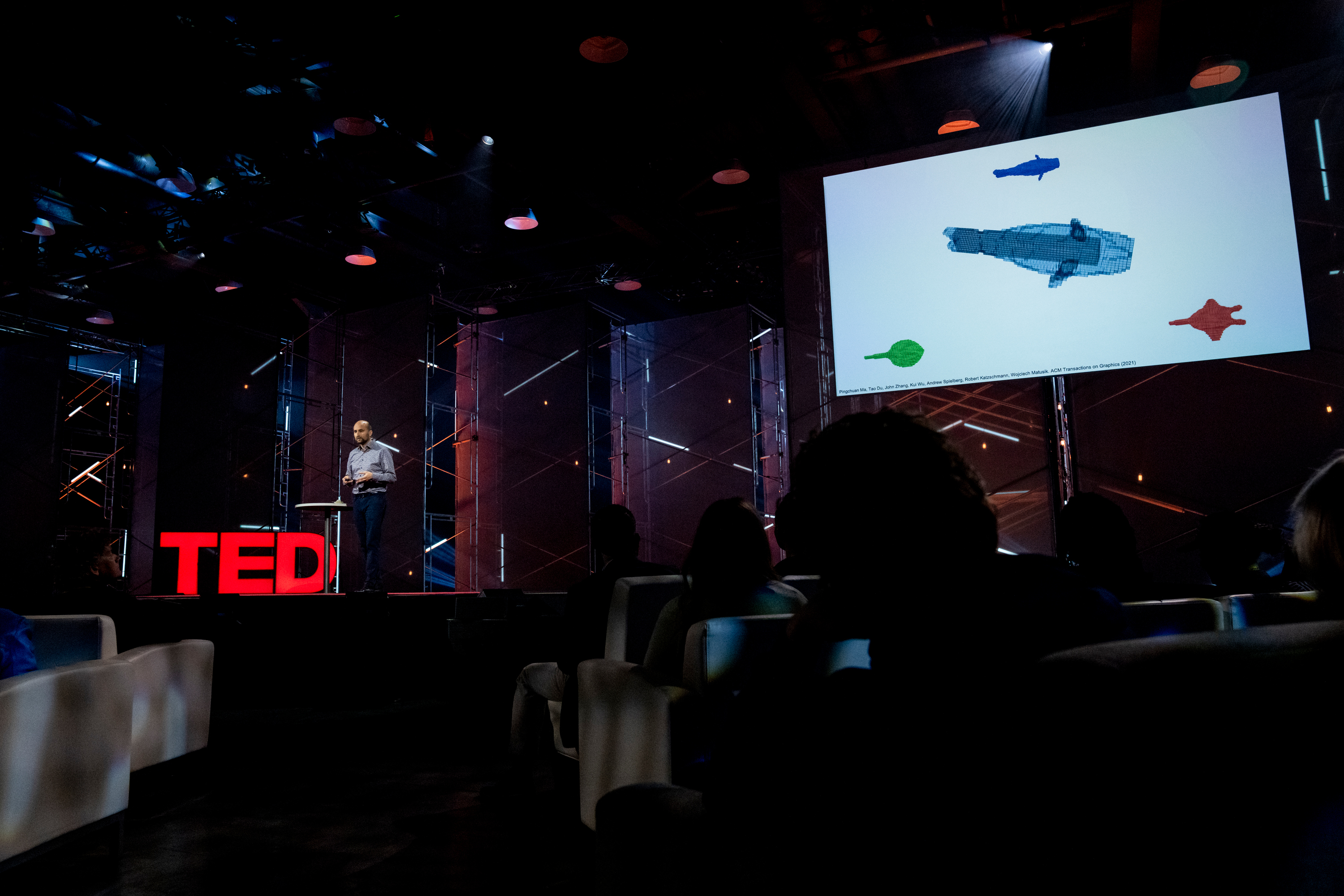
Robert Katzschmann speaks at TED Fellows Talks Session 2 at TED2022: A New Era on April 10, 2022 in Vancouver, BC, Canada. (Photo: Ryan Lash / TED)
Robert Katzschmann, soft-bodied roboticist
Big idea: Instead of building machines out of rigid, noisy materials, let’s build biomimetic machines out of soft, living materials that are adaptive and quiet.
How? Imagine a boat that propels by moving its “tail” from side to side, just like a fish. That’s the kind of machine Robert Katzschmann’s lab builds: pliable-bodied robots that imitate natural movements with artificial muscles. Their biomimetic robotic fish, SoFi, can explore the ocean without propellers, pumping water back and forth inside a deformable tail to imitate the swimming motion of a fish. Now the lab is taking it a step further, outfitting SoFi with artificial muscles that transform electrical energy into movement; when a voltage is applied to SoFi’s “muscles,” they tighten and shorten, just like biological muscle. The possibilities of this technology are thrilling — for instance, robots made of living cells that could heal themselves and proliferate — and promise to more safely integrate into the natural environment while cutting down on noise and pollution.
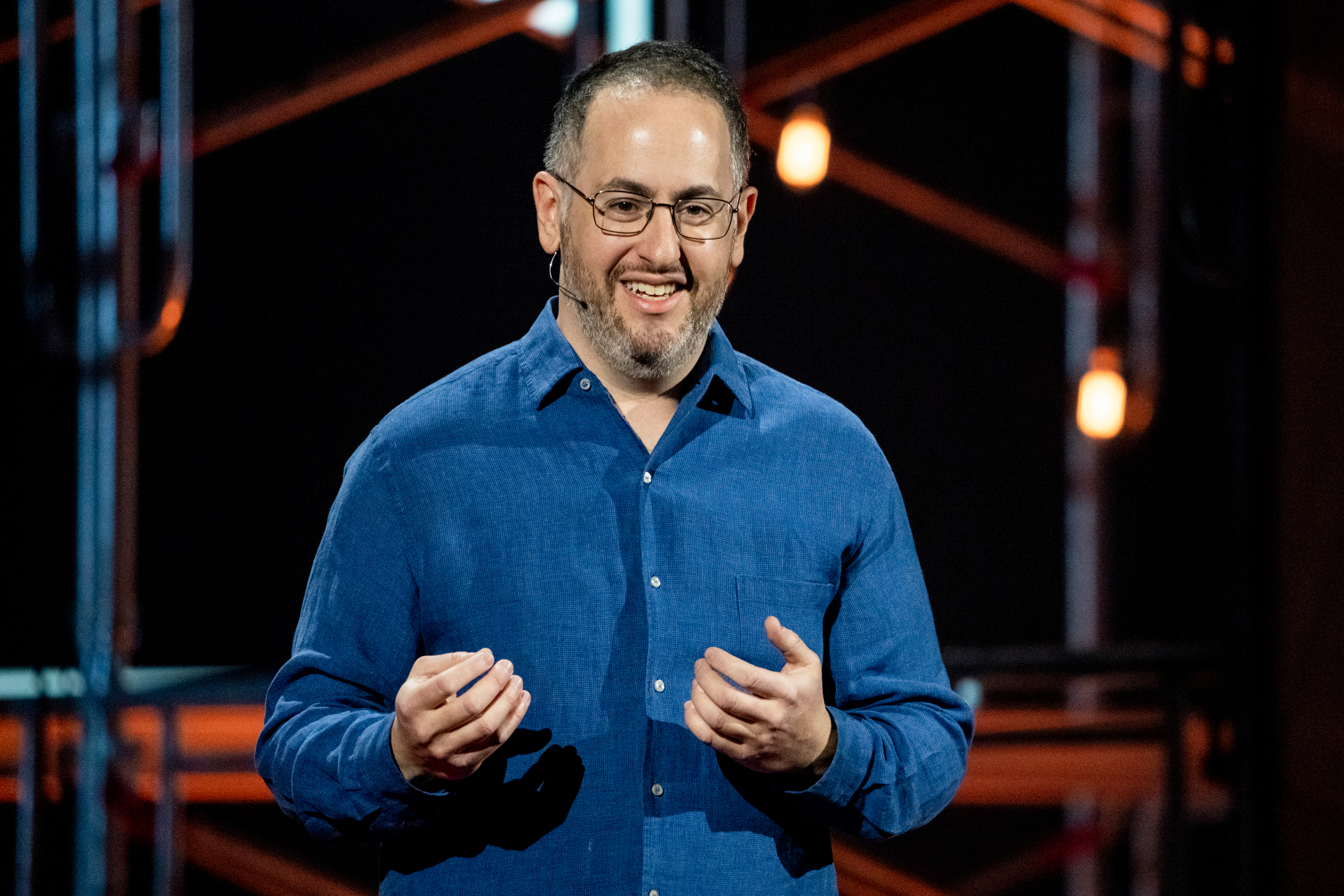
Albert Cahn speaks at TED Fellows Talks Session 2 at TED2022: A New Era on April 10, 2022 in Vancouver, BC, Canada. (Photo: Ryan Lash / TED)
Albert Cahn, anti-surveillance advocate
Big idea: We’re tracked nearly everywhere we go through the everyday tech we use. The threat is way worse than you imagine, says Albert Cahn — but the solution is simpler than you might think.
How? You may know that advertisers can sell a log of every link you click and place you go on the internet. But did you know the government can buy this kind of data, too? For instance, thanks to commercially available GPS data, the New York City Police Department could buy data on everyone who attended a Black Lives Matter protest, and Texas officials could do the same for visitors to an abortion clinic. And what companies won’t sell, Cahn says, officers can take by force — a product of the US crudely applying its 18th-century Constitution to 21st-century technology. To subvert the immense power this gives the government and police, Cahn proposes “legal firewalls”: laws that wouldn’t fight how our data is collected but rather how it’s exploited by the government. This would look like the creation of new legal codes dictating that our digital lives are outside the bounds of surveillance — and outlawing government data purchases, geofence warrants and police access to other pools of data. Now is the time to take action, Cahn says; otherwise, surveillance will soon be irrevocably embedded into the fabric of society.
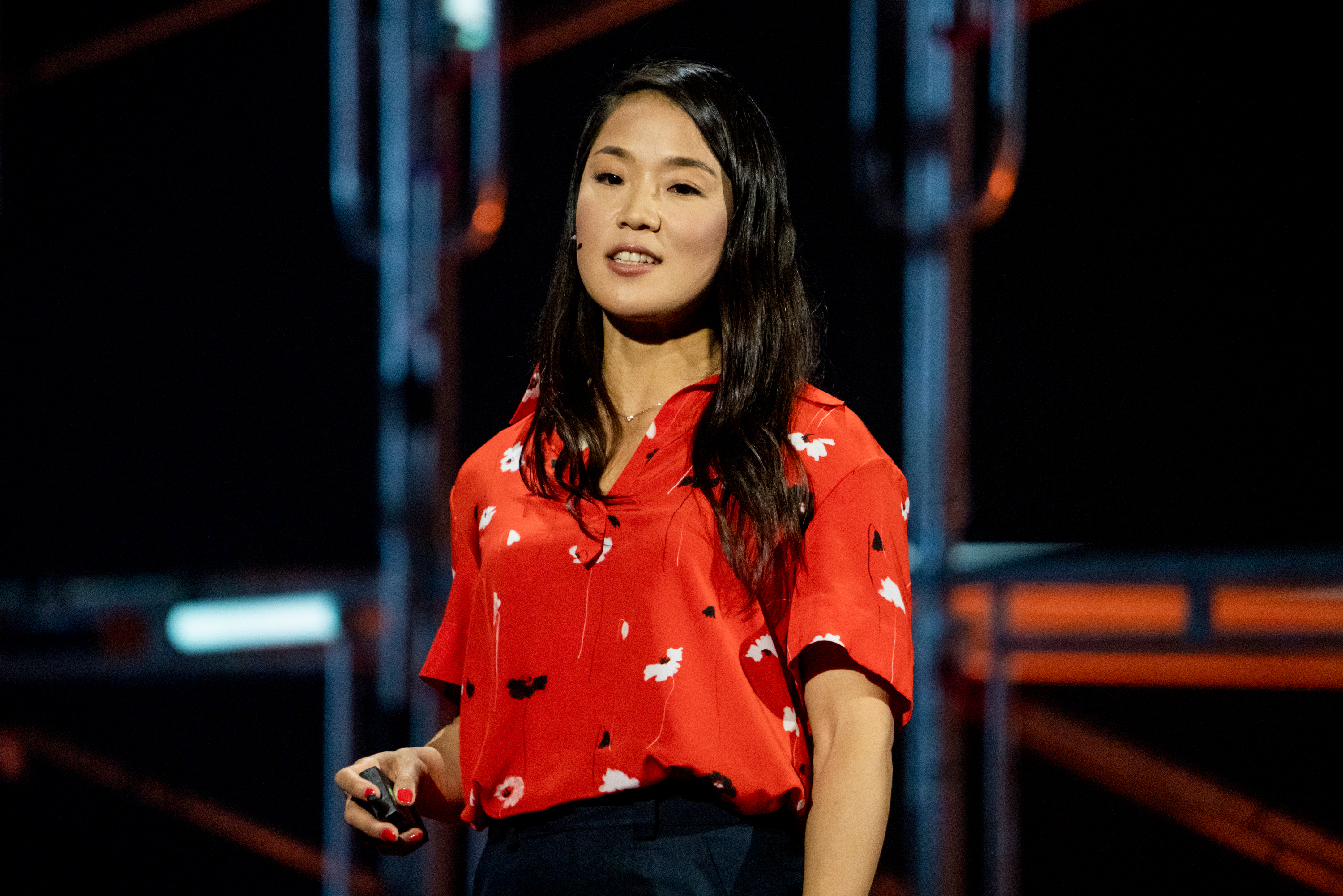
Heejae Lim speaks at TED Fellows Talks Session 2 at TED2022: A New Era on April 10, 2022 in Vancouver, BC, Canada. (Photo: Ryan Lash / TED)
Heejae Lim, education technology entrepreneur
Big idea: A parent is a child’s first teacher. We can do a better job of tapping into the incredible potential of families in education.
How? “When teachers and families work together, everyone wins,” says education technology entrepreneur Heejae Lim. Inspired by the tireless efforts of her own mother, who served as de facto translator for Korean immigrant families in their community in England, Lim and her team created a communication app that helps multilingual and underserved families create connections with their children’s teachers in their own languages. Teachers write communications in English and families receive it in their own languages, and vice versa. “We break down the language barrier and bridge cultural and knowledge differences by explaining education concepts and prompting and enabling teachers and parents to talk to each other,” Lim says. All pointing towards the goal of helping the four in five students in the US who come from low-income or immigrant families can thrive.
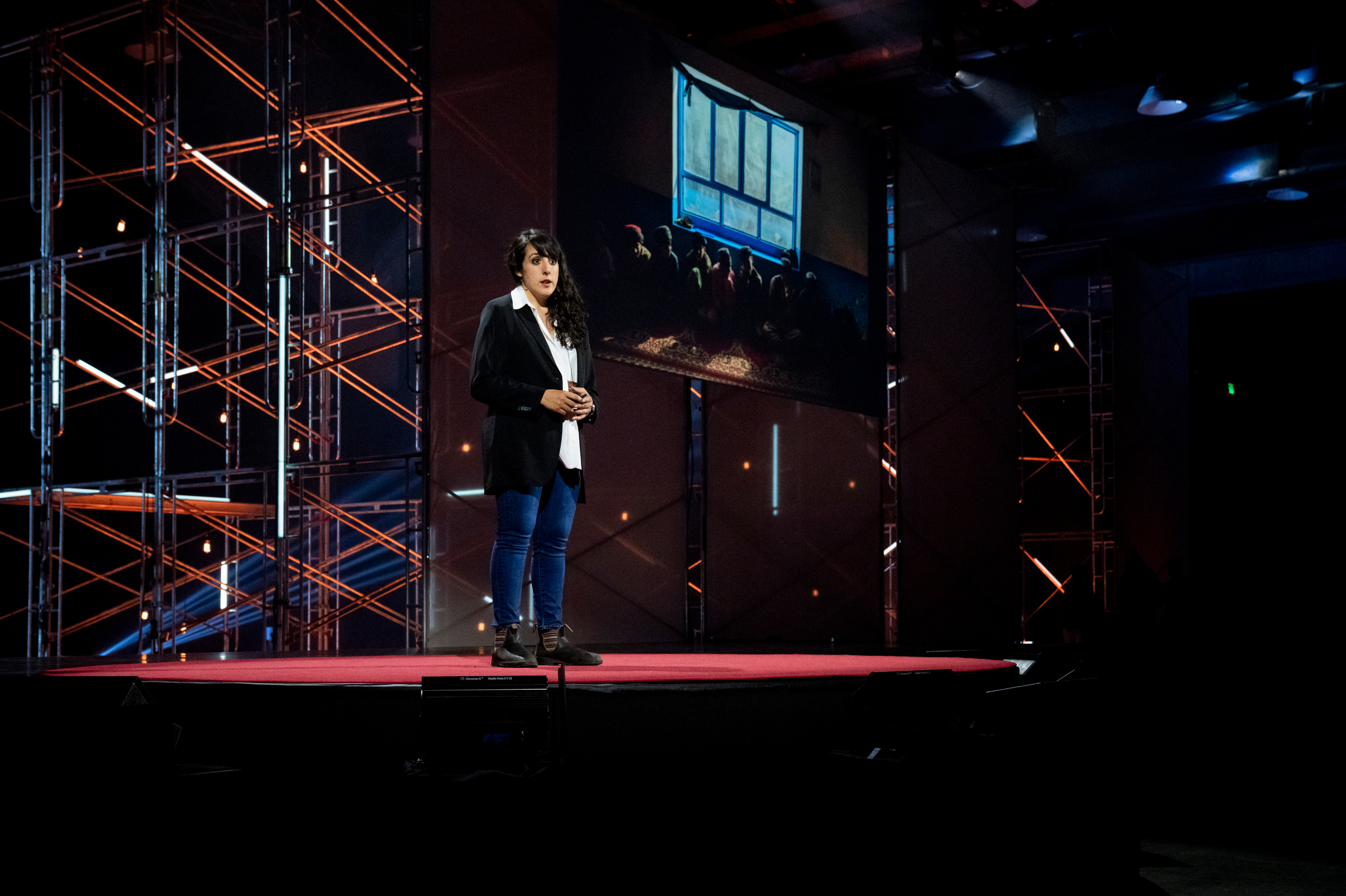
Kiana Hayeri speaks at TED Fellows Talks Session 2 at TED2022: A New Era on April 10, 2022 in Vancouver, BC, Canada. (Photo: Ryan Lash / TED)
Kiana Hayeri, documentary photographer
Big idea: After a 20-year US occupation and subsequent transition to Taliban rule, the people of Afghanistan continue to face harrowing realities in the face of war and displacement. But many remain hopeful that their country will one day heal.
How? Moved to uncover what life looks like in Afghanistan after its two-decade occupation by the US, documentary photographer Kiana Hayeri traveled across Kabul to chronicle the lives of those who were left to grapple with the aftermath of war. Through a series of vivid images, Hayeri shares what she discovered along the way: a pained mother whose grief was physically debilitating; young sons armed with guns, risking their lives for cause and country; teenagers incarcerated for political charges. In stunning detail, she recounts their stories and transports us to monumental moments — like a military raid on Afghanistan’s National Institute of Music, where a young girl’s dreams of playing music were shattered, and an airport suicide bombing that claimed the lives of more than 100 Afghans. Her journey came to a crushing end the day the Taliban took control of Kabul, and she recalls the mixture of guilt and heartbreak that she felt as she had to leave the country she lived and worked in. Despite death, devastation and deferred dreams, Hayeri hopes for the day when Afghanistan will have the chance.
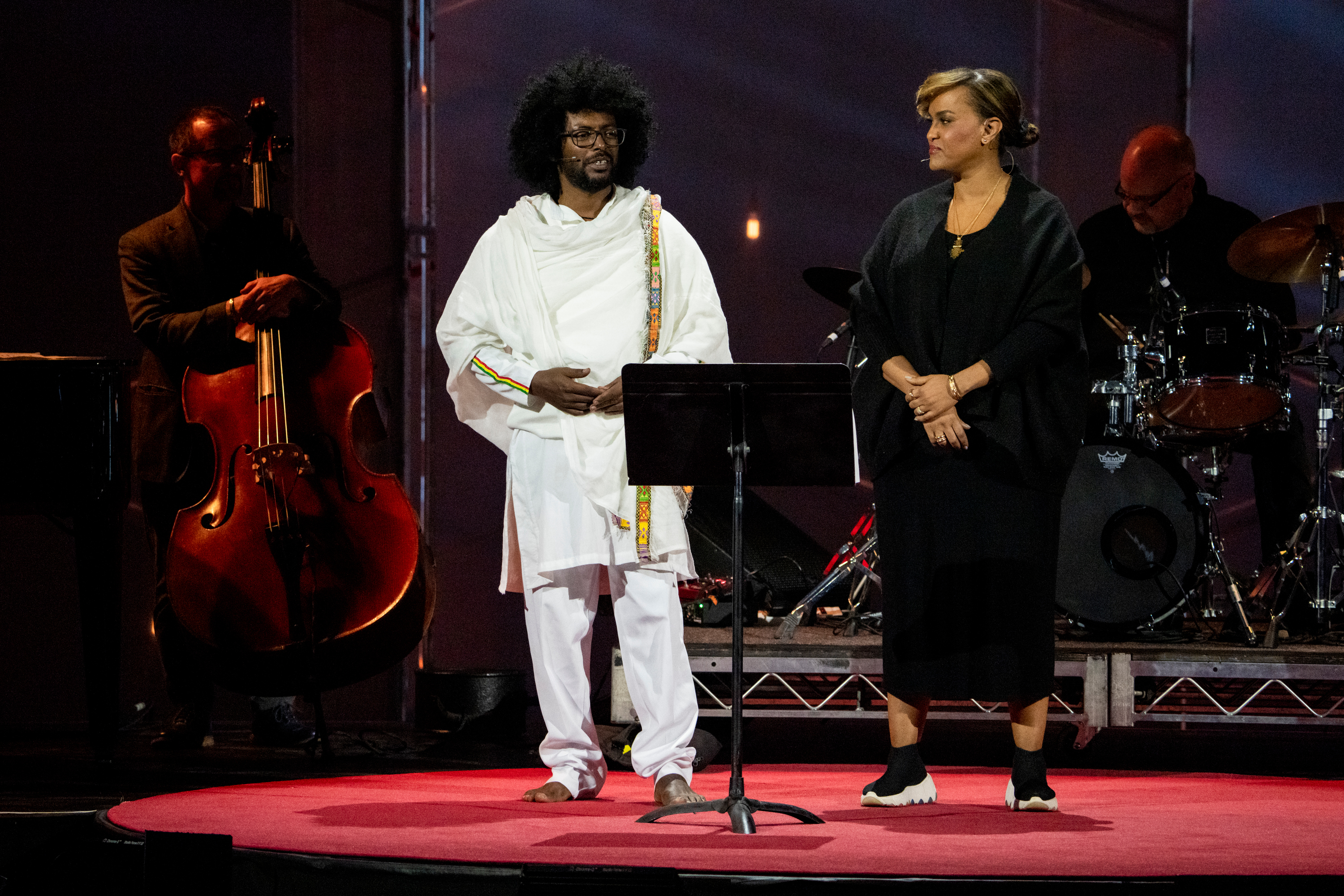
Melaku Belay and Mehret Mandefro speak at TED Fellows Talks Session 2 at TED2022: A New Era on April 10, 2022 in Vancouver, BC, Canada. (Photo: Ryan Lash / TED)
Melaku Belay, choreographer, dancer
Big idea: Ancient, traditional dances are always in the process of becoming anew. They connect us to the past while they tell stories of the present.
How? Melaku Belay begins with a traditional Ethiopian Eskista dance to the soundscape of Mercato workers pounding recycled metal into new objects in the open-air market. Originating in a moment of danger and improvisation, Eskista is “beauty born out of the desire to survive,” Belay says in his native Amharic, which is translated live onstage by filmmaker and anthropologist Mehret Mandefro, and the sound of the Mercato workers is in honor of the Indigenous trade, knowledge and creativity that thrives there. The improvised Eskista saved the once-homeless Belay when he performed the dance for years in Addis Ababa, dreaming up his present reality of sharing Eskista around the world, telling stories that express a spirit of pride that Ethiopia was never colonized as opposed to stories of hunger or war. Bridging the past, present and future, Belay ends by dancing Eskista to jazz, an African diasporic tradition that resonates with the Ethiopian spirit of freedom. “I love my traditional dance because it is alive in the moment and it leads us to the future,” Belay says.